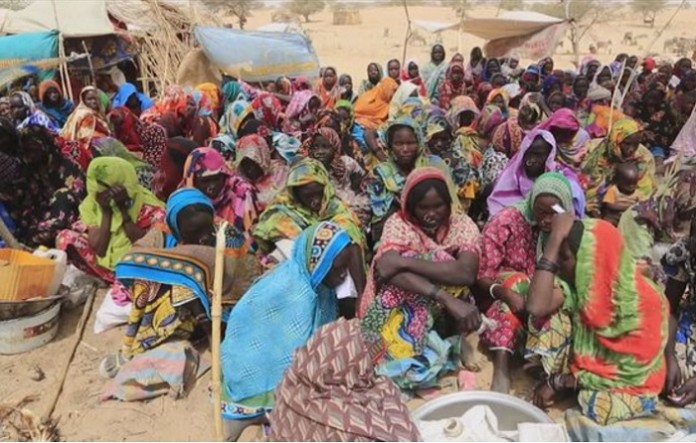Increased fighting and insecurity in northeast Nigeria and the border region of Chad and Cameroon have led to a surge of refugees and internally displaced people in recent months, amounting to a largest recent displacement crisis in Africa.
More than 5.6 million people do not have enough food to eat in the areas affected by the Boko Haram crisis. In some areas, malnutrition rates surpass World Health Organization’s emergency threshold.
Melia, an improvised settlement, is spread out over 12km on the shore of the Lake Chad. 5,000 people displaced from villages on islands in Lake Chad have been living here since June 2015.
WFP Regional Director Denise Brown said “we need resources, but we also need great collaboration with the actors on the ground, with the communities, providing additional support that was already being provided by those who were here.”
Across the border in Nigeria, Chez Coan is a community hosting informal settlements of displaced people from Kukawa LGA and Damasak areas heavily affected by the Boko Haram insurgency.
Some 50 displaced families live here living in the classrooms of Al Firdous school.
In northern Cameroon, in the areas worst affected by the Boko Haram violence, the number of people in need of food has doubled since June 2015. Over one-third of the people who live in the region face hunger. Over 70 percent of the farmers have abandoned their fields .
Nearly 160,000 Cameroonians have been displaced from border areas due to insecurity. 70,000 refugees from Nigeria are also being hosted in Cameroon.
WFP needs urgent support to continue to provide food and nutritional assistance to displaced and vulnerable host communities alike. WFP needs USD 123 million until the end of the year to respond to growing needs in the Lake Chad Basin. To date, only 17 percent of the required funding has been secured.


